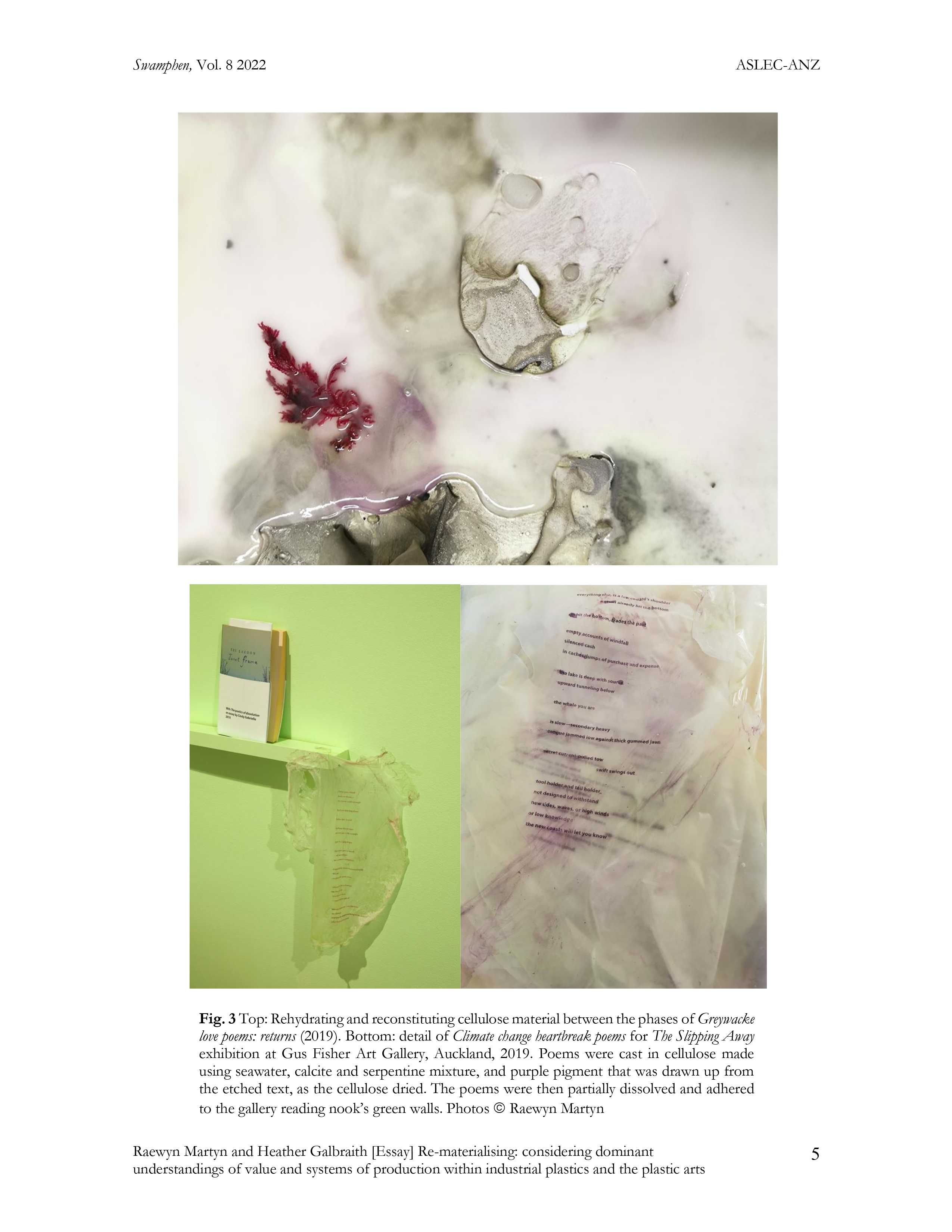Re-materialising
Considering dominant understandings of value and systems of production within industrial plastics and the plastic arts
DOI:
https://doi.org/10.60162/swamphen.8.16714Keywords:
re-materialising, plastic, petro-hegemony, petrocultures, biopolymer art, bioart, new materialism, circular economies, art ecology, site responsive painting, Te Whanganui-a-Tara, geoaestheticsAbstract
This paper considers how systems of art production are changing in response to climate crisis, and how artists are re-materialising extractive materials like plastic. This discussion centres on the creative practice of Te Whanganui-a-Tara and Ōtautahi based Pākehā artist Raewyn Martyn and thinks through connections with Pākehā, tauiwi and Indigenous practitioners in the context of earlier ecologically engaged practices. Extreme weather is escalating concerns about cycles of industry reliant on carbon emissions and waste production, and within contemporary art industries there is heightened dissatisfaction with dominant models of production, curation, collection and market-led valuation. We discuss parallel changes within systems of production in the plastics industry (with a focus on bioplastics) and within the art world, specifically Martyn’s investigation and creation of biopolymer forms which simultaneously comprise context, ground, and ‘image’ within each site responsive painting. Attention will be focused on the potentials of circular economies and aesthetics, alongside values that complicate an art ecology within the wider transition away from petro-hegemonic culture.

Downloads
Published
Issue
Section
License
Authors who publish with this journal agree to the following terms:- Authors retain copyright and grant the journal right of first publication with the work simultaneously licensed under a Creative Commons Attribution License that allows others to share the work with an acknowledgement of the work's authorship and initial publication in this journal.
- Authors are able to enter into separate, additional contractual arrangements for the non-exclusive distribution of the journal's published version of the work (e.g., post it to an institutional repository or publish it in a book), with an acknowledgement of its initial publication in this journal.
- Authors are permitted and encouraged to post their work online (e.g., in institutional repositories or on their website) prior to and during the submission process, as it can lead to productive exchanges, as well as earlier and greater citation of published work (See The Effect of Open Access).
